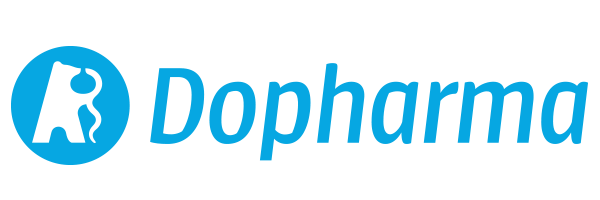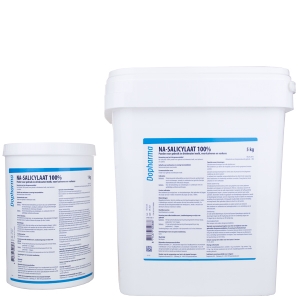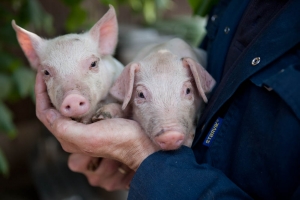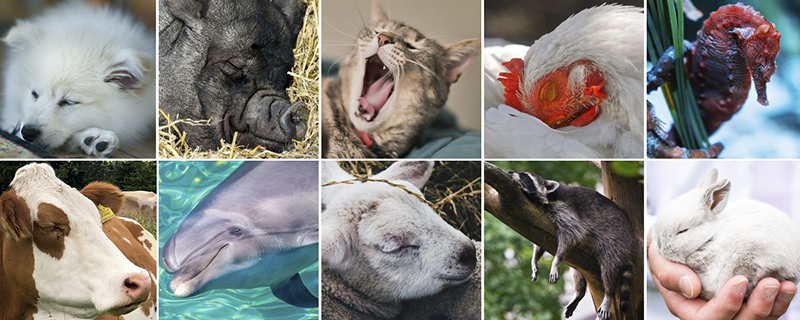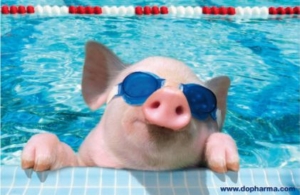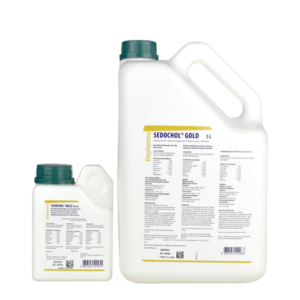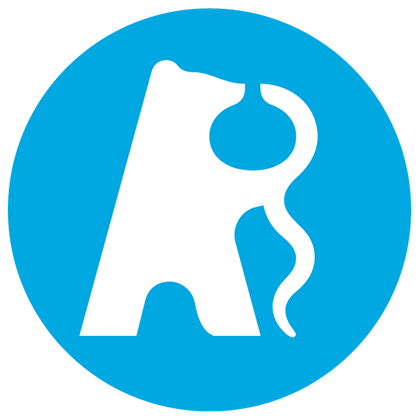Animals, like people, need to be in good health to lead a good life.
Veterinarians work with farmers to ensure that food-producing animals – e.g. cattle, pigs, poultry, sheep and goats, etc. – are kept in good health, which supports animal welfare.
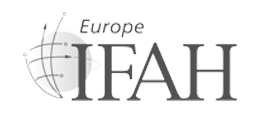
Veterinary medicines for good animal health
The animal health industry provides the veterinary profession and the farming community with veterinary medicines (also called ‘animal health products’) to support animal health. These medicines are licenced, which means they must be proven to be of high quality, safe and efficacious against diseases in animals before being allowed into the market. They include pharmaceuticals, vaccines and feed additives. By preventing or treating diseases, medicines contribute to improving and maintaining the health and welfare of animals.
Veterinary medicines are tools for veterinarians and farmers to manage animal health at the farm as part of an animal health plan. This plan includes good biosecurity [1], housing and ventilation, hygiene, nutrition and regular health monitoring, as well as the responsible use of veterinary medicines to prevent and treat diseases.
Animal health contributing to animal welfare
Animal health is a pre-condition for animal welfare. The animal health industry provides a broad variety of medicines that support animal welfare. Additionally, our industry strives to research and develop innovative products that will ensure healthy, well-nourished, animals living free of pain, suffering, or distress.
EU legislation [2] lays down the obligation for farmers to care for animals that appear to be ill or injured, and to obtain veterinary advice if necessary.
Successes in animal health
Thanks to the use of veterinary medicines Europe has been successful in preventing and managing animal diseases such as bluetongue, bovine mastitis, circovirus, foot-and-mouth disease, and salmonella, which just years ago posed serious threats to animal health, food safety and public health.
Some facts:
- Bluetongue: Prevention and control measures such as use of vaccines in sheep in particular have enabled Europe to dramatically reduce the number of bluetongue outbreaks.
- Bovine mastitis: The availability and the success of mastitis treatment has had a positive impact on the welfare of cows as well as their milk quality.
- Circovirus: The introduction of vaccines against circovirus in pigs has seen a dramatic reduction in deaths, down to levels seen prior to the epidemic, along with a general improvement in health on pig farms.
- Foot-and-mouth disease (FMD): The animal health industry has developed antigens tailored to the specific requirements of each FMD strain and the EU maintains one of the world’s largest antigen banks for rapid formulation of vaccines in the event of an outbreak.
- Inflammation and pain relief: Non-steroidal anti-inflammatory drugs (NSAIDs) can decrease fever and inflammation, reduce pain and healing time, and improve the animal’s welfare.
- Salmonella: The use of vaccines in poultry to protect against salmonella saw the prevalence of salmonella in poultry decreasing significantly with human cases reduced by almost 50% at the same time in the EU since 2004.
- Parasites: Effective parasiticide vaccines and pharmaceuticals have been developed to prevent and treat diseases such as coccidiosis in chickens, worm infections (e.g. lungworms) and tropical ticks in cattle.
The animal health industry remains aware of future critical disease challenges and strives to continue developing advanced solutions that protect both animal and human health.
Societal benefits
In addition to improving the health and welfare of food-producing animals, veterinary medicines contribute to the provision of safe, secure and sustainable food; to public health and agricultural production.
- Food safety: Veterinary medicines contribute to the safety and quality of the animal products and, very importantly, they protect consumers from harmful food-borne pathogens or zoonotic agents [3]. Examples are the success of vaccination against salmonella in poultry and treatment of bovine mastitis.
- Secure and sustainable food supply: Veterinary medicines support the provision of safe and abundant animal produce such as meat, milk, eggs and fish across Europe and beyond.
The contribution of veterinary medicines is an important one as:
- Global production of food is reduced by 20% due to diseases affecting food-producing animals, according to the World Organisation for Animal Health (OIE);
- Demand for animal protein is expected to double by 2050, and 70% of this additional food supply will have to come from modern technologies according to the United Nations’ Food and Agriculture Organisation (FAO).
- Public health: animal health + human health = one health
- According to OIE, of the nearly 1,500 infectious diseases affecting people, almost two thirds can pass between animals and people – called ‘zoonoses’. Additionally, 75% of emerging infections amongst humans are believed to have originated in animals. By preventing and curing animal diseases, veterinary medicines have a positive impact in both animal and human health. For example, through the successful use of vaccines against salmonella in poultry human cases have reduced by almost 50% in the EU since 2004.
- Agricultural production: Although they represent a small proportion of agricultural input costs (on average less than 2%), veterinary medicines are instrumental for farmers to maintain and/or restore a high level of animal health and welfare and therefor
- produce high quality animal produce on an efficient and sustainable basis;
- minimise the impact on the environment;
- compete internationally.
Veterinarians believe that in a situation without veterinary medicines, the poultry population would have to increase by 25% and the cattle population by 89% to obtain the same production level as today. (Source: Prof. Jacques Viaene, Ghent University)
Useful links
[1] A set of preventative measures aiming to keep groups of animals healthy or to limit the spread of diseases within an animal population.
[2] Council Directive 98/58/EC concerning the protection of animals kept for farming purposes.
[3] A disease that is transmissible between food-producing animals and humans, also called ‘zoonosis’
